Students criticize the ministry’s increasing control over the universities
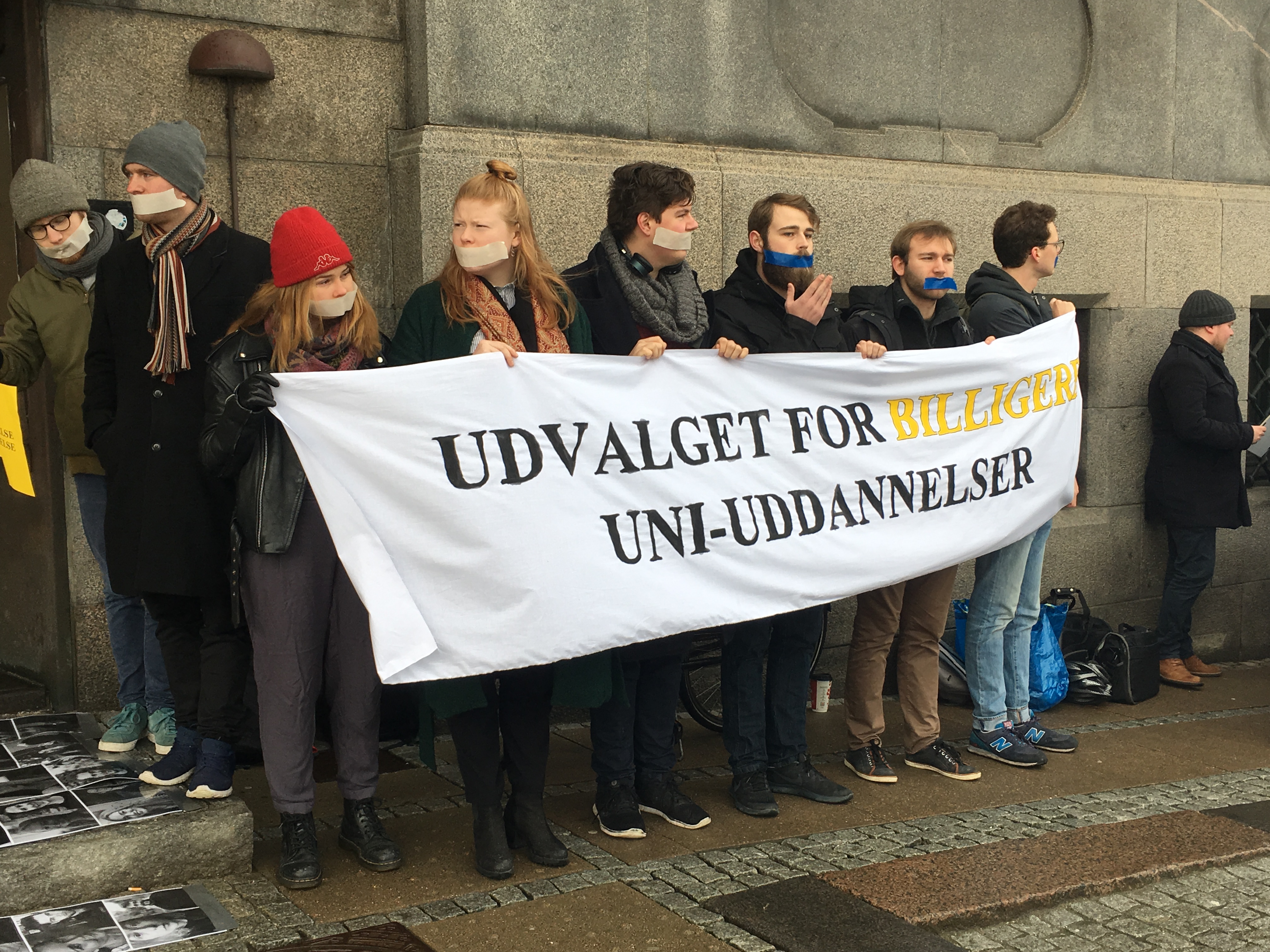
Students had on Monday the 12th of March showed up at the Ministry of Higher Education and Science to show their disagreement with part of the recommendations from the Committee on Improved University Educations. (Photo: Anne M. Lykkegaard)
On the 12th of March, the Committee on Improved University Educations proposed 37 new recommendations on how to improve education at universities . However, Jeppe Ask Tofteskov, President of CBS Students, and Sana Mahin Doost, President of the National Union of Students, fear a stagnation of the development of educations and the death of student democracy if the 37th recommendation is enforced, as it will diminish the power of the study boards.
On the 12th of March, about 30 students with duct tape over their mouths stood outside the Ministry of Higher Education and Science holding banners saying; ‘The committee for cheaper university education’ and ‘Rest in peace student democracy – 1968 – 2018’. On the doorsteps of the ministry lay pictures of students, and every time a person entered or exited the ministry, the students would cry ‘ow’, from under the tape.
The students had come to protest because the Committee on Improved University Education presented their 37 recommendations on how to improve education at the Danish universities so that they may be more fit for the future. They just forgot to invite the students to the committee, points out Jeppe Ask Tofteskov, President of CBS Students.
“It is obvious that the students haven’t been a part of the actual committee,” he says.
I fear that the study boards will become a marionette, of which the ministry can pull the strings as they like
Sana Mahin Doost, president, National Union of Students
He points out that the 37th recommendation is notably troublesome. It suggests that the responsibility for the content and quality of the educations should be removed from the study boards and shifted to the management staff of the universities.
“By removing the responsibility for content and quality from the study boards, you get less quality and less innovativeness at the universities. I mean, why did the students start a riot in 1968? Because the professors taught the same and the same again. The students didn’t have a say in what was being taught. We will experience a stagnation of our educations, and have an agenda set by the ministry, which doesn’t take the students well-being into account. We have seen that before with other reforms,” he says.
Sana Mahin Doost, President of the National Union of Students (Danske Studerendes Fællesråd), was standing alongside with the protesting students showing her disagreement towards the recommendations of the committee.
“This committee has been working on the recommendations for a year. But even though it’s very much about the students, we were never invited to take part in the committee and give our point of view, and that’s beneath contempt,” she says.
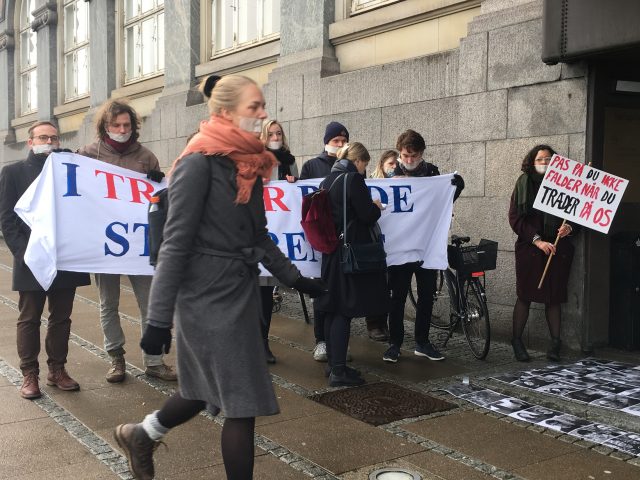
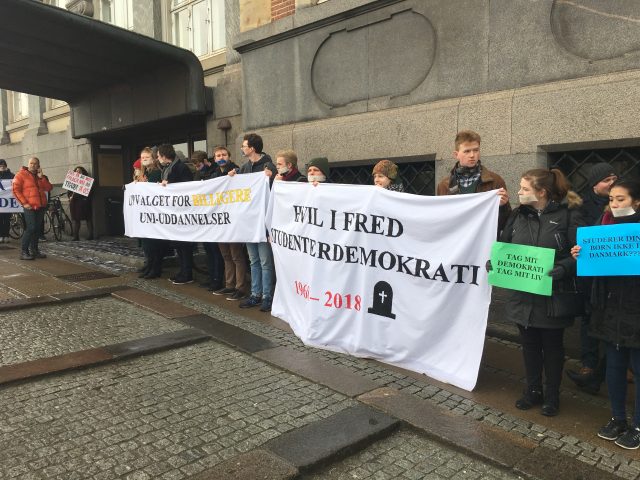
According to Agnete Gersing, the President of the committee and the permanent secretary of the Ministry of Higher Education and Science, the students have been involved via a reference group. But as Jeppe Ask Tofteskov understands it, there has been a feeling that the group was just being used to inform the students about the work of the committee, and less as a place where the students could offer their ideas for recommendations.
A marionette of the ministry
According the Committee on Improved University Educations, the study boards will still have the responsibility of working out the study program and to follow up on the educational evaluations, merit etc. within the framework that the senior management lay down. But the responsibility should be with the senior management, said Søren Pind, the Minister for Higher Education and Science during the presentation of the recommendations.
“It’s a discussion of ideology. Who makes the decisions at the universities? The management does. As it is right now, it is difficult to figure out who’s responsible for the content and the quality of the educations, and for that reason, it is better and more transparent to give the responsibility to the management,” he said.
Jeppe Ask Tofteskov argues that the universities are giving up their independence and freedom if this recommendation is enforced.
“This recommendation is a further stream lining of the management of the universities. Now you have a direct link from the ministry to the universities, as they are also taking part in the electing of the representatives for the board of directors,” he says and continues:
“But the universities need freedom and independence from politicians. The politicians don’t get to decided what topics the researchers should look at, and neither should they decide how to tailor education for students. It is the students who know what works the best.”
Sana Mahin Doost is afraid that the study boards will just become a marionette of the ministry in the end.
“I fear that the study boards will become a marionette, of which the ministry can pull the strings as they like. Thereby, you remove the democracy and the students’ involvement. That’s sad,” she says.
The last word has not yet been said
For now, the 37 recommendations are just recommendations. But later this spring, the government will launch an initiative based on the recommendations. Sana Mahin Doost hopes that she, along with the other students, will have the strength to change the minds of the politicians.
“We hope that the politicians will take the time and actually listen to the students. The committee has made their decisions about this, but they still need to persuade the other politicians. Maybe we can still make the politicians realize that this is a bad idea,” says Sana Mahin Doost.



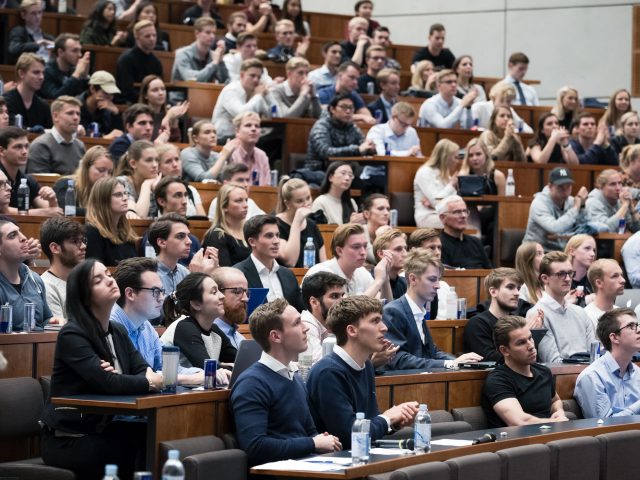
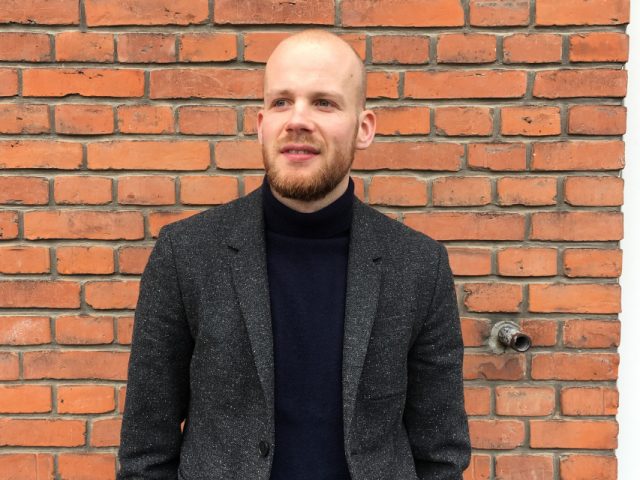
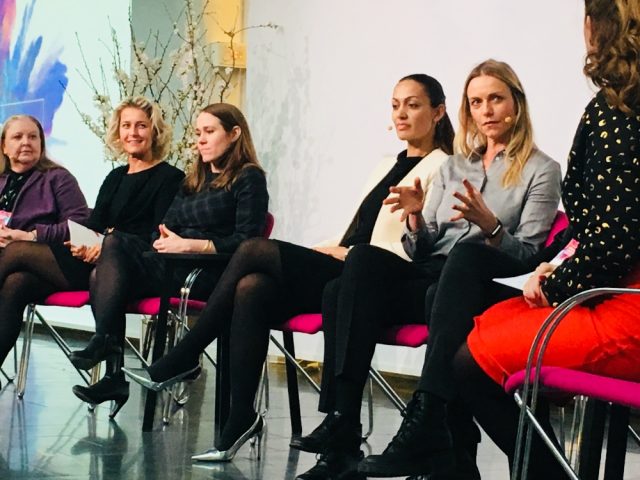





























































































































Comments